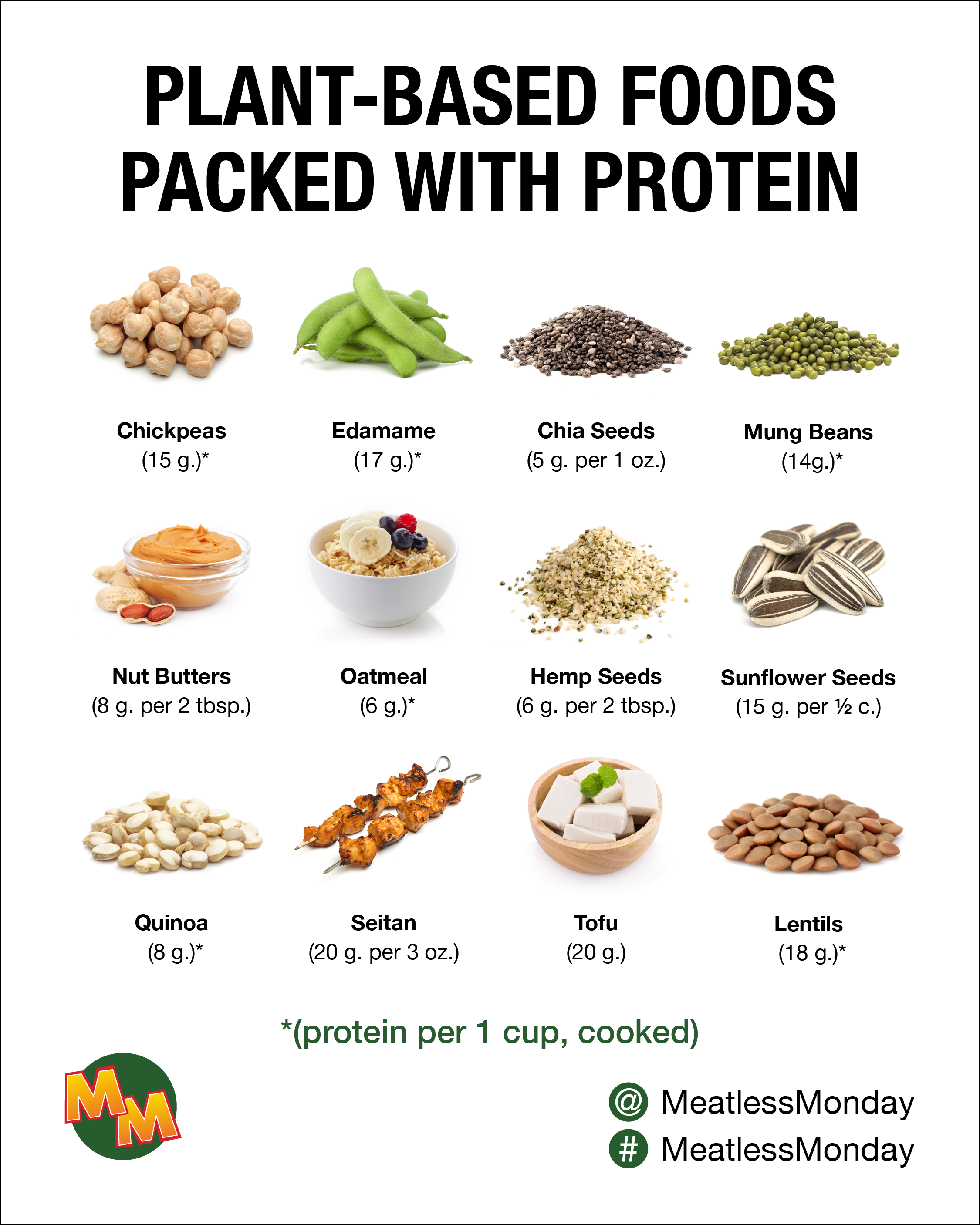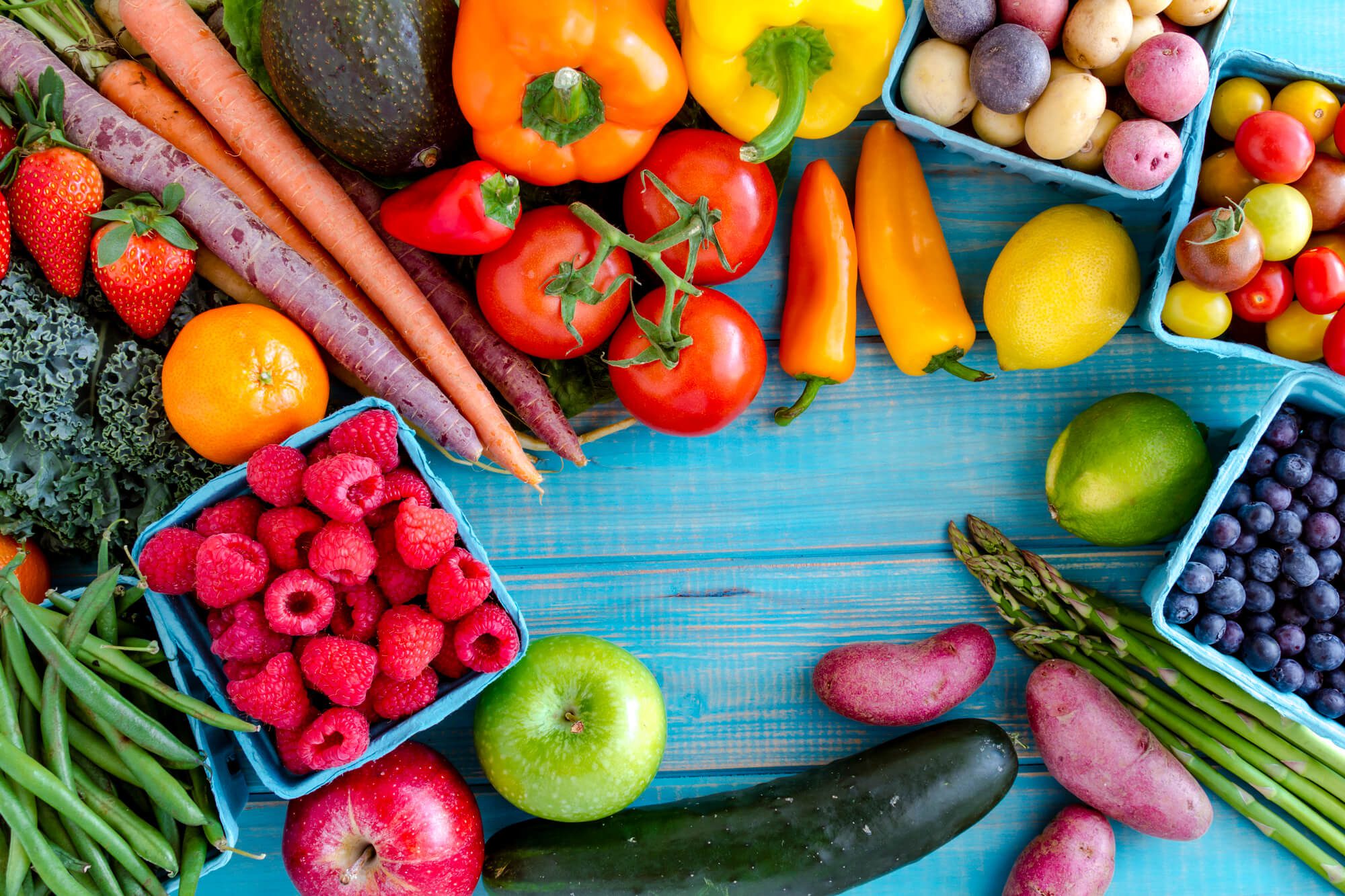All Regarding Healthy And Balanced Food: Advantages of Taking On Plant Based Choices
The discussion surrounding plant-based diet regimens has actually gotten considerable interest in the last few years. Many people are discovering the prospective health benefits, nutritional advantages, and environmental influences linked with these nutritional options. As people come to be more conscious of their food's influence on health and sustainability, concerns occur about the usefulness of embracing such a lifestyle. What specific adjustments can one expect, and how might these selections improve not only personal wellness however also the earth's future?
Comprehending Plant-Based Diets
Several people link plant-based diets primarily with vegetarianism or veganism, these diet regimens can encompass a vast range of consuming patterns that prioritize entire, minimally processed plant foods. Such diet regimens typically consist of fruits, vegetables, entire grains, legumes, nuts, and seeds, while eliminating or limiting pet items. This flexibility enables people to customize their nutritional options according to individual preferences and nutritional requirements. Some may adopt a largely plant-based diet plan while still occasionally consuming meat or dairy products, typically referred to as a flexitarian strategy. The focus continues to be on including more plant foods, which can result in a varied variety of dishes and flavors. Understanding these different interpretations of plant-based eating is necessary for valuing its ease of access and charm in contemporary food culture.
Health And Wellness Perks of Plant-Based Foods
The wellness benefits of plant-based foods are significant, providing a nutrient density advantage that sustains total well-being. Research indicates that these foods can improve heart health and play a vital function in efficient weight administration. By integrating much more plant-based choices, individuals may enhance their dietary selections and advertise lasting health and wellness.
Nutrient Thickness Advantage
Nutrient density plays an important duty in the health advantages of plant-based foods, making them an engaging option for those seeking a balanced diet. Plant-based foods, such as fruits, veggies, beans, nuts, and entire grains, are typically rich in important vitamins, minerals, and antioxidants while being reduced in calories. This high nutrient thickness permits individuals to consume less calories while still satisfying their nutritional needs. In addition, these foods are loaded with nutritional fiber, promoting digestive wellness and helping in weight administration. By incorporating nutrient-dense plant-based alternatives, consumers can enhance their total health and wellness, support their body immune systems, and decrease the risk of persistent diseases. Inevitably, the nutrient density of plant-based foods underscores their value in a health-conscious way of life.
Heart Wellness Enhancement

Weight Management Support
In enhancement to advertising heart wellness, a plant-based diet regimen can considerably aid in weight management. This nutritional approach emphasizes whole foods such as fruits, veggies, legumes, nuts, and whole grains, which are usually lower in calories and greater in fiber contrasted to animal-based products. The high fiber content helps increase satiety, minimizing total calorie consumption. Furthermore, plant-based diet plans are commonly rich in necessary nutrients while low in undesirable fats, making it less complicated to keep a healthy and balanced weight. Gluten Free BBQ Sauce. Research suggests that people who adopt a plant-based way of living often tend to have reduced body mass indexes (BMIs) and experience even more successful weight-loss contrasted to those who take in meat-heavy diets. Consequently, welcoming plant-based options is a critical selection for efficient weight monitoring
Nutritional Value of Plant-Based Active Ingredients
Plant-based ingredients are abundant in important nutrients, supplying a diverse selection of vitamins, minerals, and antioxidants that contribute to general health and wellness. A contrast of protein resources exposes that while pet products are frequently seen as remarkable, lots of plant-based moved here choices supply ample protein and other helpful compounds. Understanding the dietary worth of these active ingredients can help people make informed nutritional choices.
Important Nutrients in Plants
Nutrient-rich active ingredients discovered in plants supply a diverse range of crucial nutrients that contribute substantially to total wellness. These components are abundant in vitamins A, C, and K, which support immune feature, vision, and blood clot, respectively. Furthermore, plants give vital minerals such as calcium, potassium, and magnesium, vital for heart health and wellness, muscle feature, and bone stamina. The presence of fiber in plant-based foods help digestion and advertises a healthy gut microbiome. Anti-oxidants, found perfectly in fruits and veggies, assistance combat oxidative anxiety and decrease swelling. Many plant foods are low in calories yet high in nutrients, making them an excellent choice for those seeking to preserve a healthy and balanced weight while guaranteeing excellent nutrient intake.

Contrasting Healthy Protein Sources
Protein resources differ substantially in their dietary profiles, with plant-based ingredients offering one-of-a-kind benefits. Unlike animal proteins, which usually have hydrogenated fats and cholesterol, plant proteins have a tendency to be reduced in these undesirable components. Legumes, nuts, seeds, and entire grains are abundant in important amino acids, fiber, vitamins, and minerals. Lentils give high protein material alongside considerable iron and folate, while quinoa is a full protein, offering all 9 essential amino acids. Furthermore, plant-based healthy proteins are typically come with by antioxidants and phytochemicals that sustain overall wellness. The shift to plant-based healthy protein sources not only boosts nutritional consumption but likewise aligns with lasting dietary methods, reducing environmental effect and advertising lasting health advantages.
Environmental Effect of Plant-Based Eating
As awareness of environment adjustment grows, lots of individuals are checking out lasting dietary options that can considerably lessen their environmental impact. Plant-based consuming has emerged as a substantial factor to decreasing greenhouse gas discharges, which are largely connected with livestock production. The farming of fruits, grains, beans, and vegetables commonly calls for fewer resources, such as water and land, compared to animal farming. Furthermore, plant-based diet regimens can bring about decreased deforestation, as much less land is needed for grazing livestock or growing pet feed. By shifting in the direction of plant-based options, customers can support biodiversity and promote healthier environments. On the whole, welcoming plant-based consuming not just advantages individual wellness yet additionally stands for an essential action towards ecological sustainability and conservation efforts.
Overcoming Common Misconceptions
While numerous individuals recognize the benefits of a plant-based diet regimen, numerous misconceptions often deter them from completely embracing this lifestyle. An usual idea is that plant-based diet plans lack sufficient healthy protein; nonetheless, many plant resources, such as vegetables, nuts, and tofu, offer ample healthy protein. In addition, some presume that this diet is expensive, when in reality, staples like beans, rice, and seasonal veggies can be rather budget-friendly. One more misconception is that plant-based consuming is excessively restrictive, whereas it in fact uses a diverse selection of foods and tastes. Ultimately, lots of worry that a plant-based diet regimen may lead to shortages, yet with proper preparation, individuals can get all needed nutrients, including minerals and vitamins, while taking pleasure in a variety of tasty meals.
Tips for Transitioning to a Plant-Based Way of life
Making the change to a plant-based lifestyle can be an enhancing experience, though it often needs some guidance to navigate the preliminary changes. People are encouraged to start progressively, including more fruits, veggies, vegetables, and entire grains right into their meals while decreasing meat and dairy products intake. Meal planning is necessary; preparing an once a week menu can help relieve the adjustment and protect against last-minute unhealthy options. Checking out brand-new dishes and cooking approaches can also enhance the experience and preserve enjoyment regarding plant-based consuming. In addition, signing up with assistance teams or areas can give inspiration and share valuable tips. Remaining notified about nutrition warranties well balanced dishes, protecting against shortages while promoting a healthy, rewarding plant-based lifestyle.

Delicious Plant-Based Dish Ideas
Checking original site out scrumptious plant-based meal ideas can motivate people to embrace an extra healthy diet regimen. One preferred option is a hearty quinoa salad, including cherry tomatoes, cucumber, and a vibrant lemon-tahini dressing. One more favorite is a full-flavored lentil stew, loaded with carrots, celery, and fragrant herbs, ideal for a comforting dinner. For breakfast, overnight oats made with almond milk, chia seeds, and covered with fresh berries give a nourishing start to the day. Additionally, a dynamic veggie stir-fry with tofu and a selection of vivid veggies can be a fast yet pleasing dish. Creamy avocado toast on whole-grain bread, sprayed with seeds and spices, offers a simple yet tasty snack. These meals showcase the selection and splendor of plant-based consuming.

Frequently Asked Inquiries
Can a Plant-Based Diet Provide Sufficient Protein?
The inquiry of whether a plant-based diet plan can give adequate protein is usual. Countless resources, consisting of legumes, nuts, seeds, and entire grains, can meet healthy protein needs properly, supporting a nutritious and well balanced diet for individuals.
Are Plant-Based Diet Regimens Appropriate for Kid?
The suitability of plant-based diet regimens for children relies read review on careful preparation. Adequate nutrients need to be guaranteed, including proteins, minerals, and vitamins. With correct assistance, such diet regimens can support healthy development and development in children.
Exactly how Do I Eat in restaurants on a Plant-Based Diet?
Eating in restaurants on a plant-based diet regimen involves seeking dining establishments with varied menus, asking for adjustments, and checking out vegan-friendly alternatives. Preparation ahead and interacting dietary choices can boost the dining experience while maintaining dietary options.
What Are Usual Allergens in Plant-Based Foods?
Common allergens in plant-based foods include soy, gluten, nuts, and seeds - Plant Based Beef. Individuals following a plant-based diet plan must understand these irritants and review labels carefully to avoid unfavorable reactions and ensure risk-free usage
Can Plant-Based Diets Aid With Weight Loss?
Research indicates that adopting a plant-based diet might facilitate weight loss due to its generally lower calorie density and higher fiber content. This combination can improve satiety, helping individuals handle their calorie consumption successfully. Lots of people connect plant-based diets mainly with vegetarianism or veganism, these diets can incorporate a large variety of eating patterns that prioritize entire, minimally refined plant foods. Nutrient thickness plays a crucial duty in the health and wellness benefits of plant-based foods, making them a compelling selection for those looking for a balanced diet plan. Plant-based diet plans have been revealed to substantially enhance heart health and wellness, as they frequently contain components that support cardiovascular feature. In addition to promoting heart wellness, a plant-based diet plan can considerably assist in weight administration. A common idea is that plant-based diets do not have adequate protein; nevertheless, various plant resources, such as vegetables, nuts, and tofu, provide enough protein.